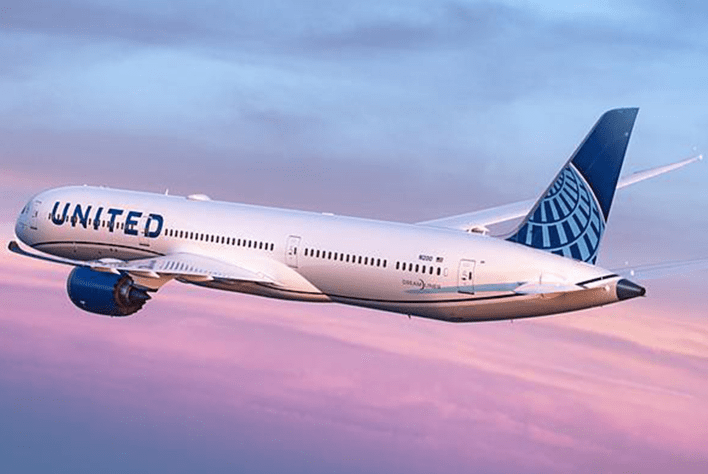United Airlines, Delta Airlines and American Airlines, Alaska Airlines, Southwest Airlines and JetBlue are committed to using more sustainable jet fuel (SAF).
In support of Airlines for America’s new 2030 target, these airlines have made specific commitments to increase the use of SAF and promote sustainability in their operations.
United Airlines
This Thursday, the White House reported that it aims to reduce aviation emissions by 20% by 2030.
First, United Airlines announced a new target to reduce its carbon emissions intensity by 50% compared to 2019 in 2035.
Also United Airlines and Honeywell announced a new multi-million dollar investment in Alder Fuels to produce sustainable carbon negative aviation fuel at scale.
Under the agreement, Honeywell and Alder Fuels will jointly commercialize technology that could demonstrate a greenhouse gas emission reduction of more than 100% over the life cycle of aviation fuel.
United Airlines has committed to purchasing 1.5 billion gallons of this new SAF over the next 20 years.
Other airlines
Delta Airlines is committed to replacing 10% of current jet fuel use with SAF by 2030 and has agreements with three SAF producers, Neste, Gevo and Northwest Advanced Bio-Fuels.
Additionally, Delta recently announced a new SAF emissions pilot project with Chevron and Google to increase SAF industry transparency.
For its part, American Airlines plans to acquire 10 million gallons of SAF from Prometheus Fuels by 2025 through a process that produces fuels from captured CO2 and renewable electricity.
Alaska Airlines offers the purchase of SAF to offset corporate travel on key routes and has agreements in place with SAF producers, including SkyNRG Americas and Neste.
While Southwest Airlines is partnering with the National Renewable Energy Laboratory to develop and commercialize SAF, JetBlue is committed to the development of hydrogen and electric aircraft in partnership with Joby Aviation and Universal Hydrogen.
![]()

